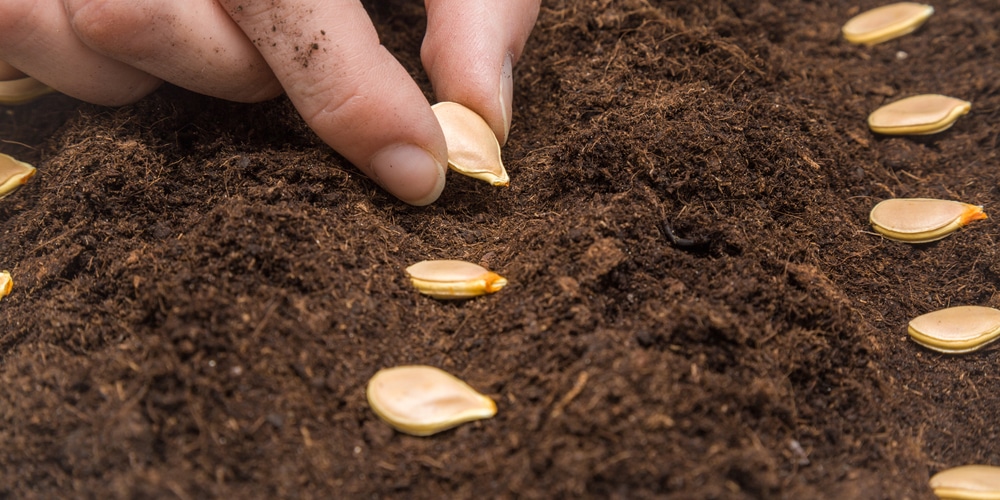A gardener’s heart flutters with excitement and anticipation as they sow their first seeds. These tiny bundles of life, brimming with dormant potential, embark on a miraculous journey when granted the right conditions. But how long must we wait, soil under our fingernails and hope in our hearts, before witnessing the first signs of growth? The answer, like the species of seeds themselves, varies widely.

How Long Do Seeds Take To Sprout
The rate at which seeds germinate is influenced by an intricate dance of factors, including the seed’s species, the temperature, the soil moisture, and the availability of light. Some seeds, such as radishes and lettuce, are eager to burst forth, completing their germination within a matter of days. Others, like rosemary and lavender, prefer to take their time, patiently biding their moment for weeks or even months.
Factors Affecting Seed Germination
Temperature: Seeds thrive in specific temperature ranges, known as their optimal germination temperatures. When temperatures deviate from this ideal zone, germination is hindered or even prevented.
Soil Moisture: Water plays a crucial role in initiating germination. The moisture content of the soil must be sufficient to soften the seed coat and trigger the metabolic processes within. However, waterlogging can suffocate the seed, depriving it of oxygen.
Light: While many seeds prefer darkness for germination, some species, such as lettuce and spinach, require exposure to light to stimulate germination. Providing the appropriate lighting conditions can significantly accelerate the sprouting process.
Understanding the Germination Process
As a seed absorbs water, its embryo rehydrates and resumes metabolic activity. Specialized hormones, known as gibberellins, are released, triggering a cascade of biochemical reactions. The seed coat loosens, and the embryo emerges, ready to establish roots and shoots.
The duration of the germination process is determined by the interplay of factors discussed earlier. Larger seeds, such as beans and peas, typically take longer to sprout than smaller seeds like tomatoes and peppers.
Latest Trends and Developments
Advances in plant science and technology are continuously unveiling new insights into seed germination. Researchers are developing innovative methods to enhance germination rates, such as seed priming and controlled environment chambers.
Online forums and social media platforms provide a wealth of information and support for gardeners of all levels. By connecting with fellow enthusiasts, one can gain valuable tips and insights into optimizing seed germination for various species.
Tips and Expert Advice
Choose high-quality seeds: Selecting healthy seeds from reputable suppliers increases the likelihood of successful germination.
Prepare the soil properly: Ensure the soil is well-drained, loose, and rich in organic matter. This provides an ideal environment for seed growth.
Maintain optimal temperature: Monitor the temperature closely and adjust it accordingly to match the specific needs of the seeds being germinated.
Provide adequate moisture: Keep the soil moist but not waterlogged. Use a spray bottle or cover the seeds with a damp cloth to prevent drying out.
Provide light when necessary: For species that require light for germination, place the seeds on a sunny windowsill or under grow lights.
Expert Insights
According to Dr. Sarah Richards, a plant physiologist at the University of California, Davis, “Seed germination is a critical stage in the life cycle of plants. By understanding the factors that influence this process, gardeners can maximize their chances of successful germination and establish healthy, vigorous plants.”
Renowned horticulturist Monty Don emphasizes the importance of patience in seed germination. “Don’t be discouraged if your seeds don’t sprout immediately,” he advises. “Some seeds take longer than others. Provide the right conditions, and with a little patience, you will be rewarded with the joy of new life.”
FAQ
Q: Why are some seeds slow to germinate?
A: Factors such as seed size, maturity, and the presence of hard seed coats can contribute to slower germination rates.
Q: How can I speed up seed germination?
A: Pre-soaking seeds in warm water, scarifying the seed coat, and providing bottom heat can enhance germination speed.
Q: Can I plant germinated seeds directly in the garden?
A: It is generally recommended to wait until seedlings have developed a few true leaves before transplanting them outdoors.
Q: What are the signs of healthy seed germination?
A: Healthy germination is indicated by a firm, white radicle (primary root) and a green, healthy cotyledon (first leaf).
Conclusion
The wait for seeds to sprout can be filled with both anticipation and uncertainty. By understanding the factors that influence germination, utilizing expert advice, and providing the right conditions, gardeners can enhance the likelihood of successful sprouting. Whether you are a seasoned gardener or just starting your journey, the joy of witnessing the transformation of a seed into a thriving plant is an experience that will never lose its magic.
Call to Action:
Are you eager to learn more about the fascinating world of seed germination? Explore our website for a comprehensive guide to optimize germination rates and cultivate a thriving garden filled with vibrant blooms and bountiful harvests.
How Long Do Seeds Take To Sprout
/growing-seeds-indoors-common-mistakes-847800-05-db13b15adbbb4d3a9097230c5bb97cc4.jpg)
Image: geostringmoney.blogspot.com










